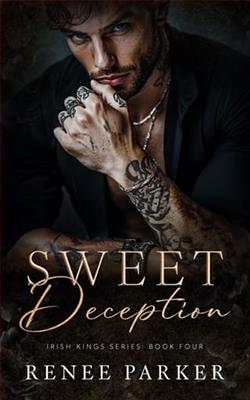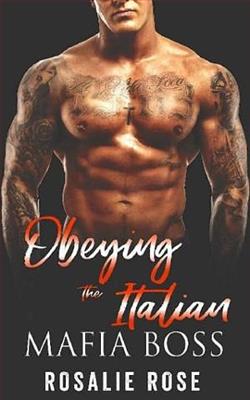Page 78 of Bay of Plenty
I scrambled out of bed and raced to the window. A light beamed from the sky into the darkness.
“It can’t be good. I’ll take you on a path no one else knows about—we’ll ride Taniwha.”
Despite what happened the previous night, I trusted him. I had to. Without a word, I pulled on my clothes, stiff but dry, filled one of his water bottles, and shoved it into my backpack. Outside, he helped me climb clumsily onto Taniwha. He slid into the saddle in front of me, then led us into dense bush with no sign of a path.
I clung to Kingi’s waist as we rode downhill, a terrifying descent that was so steep and slippery, our swaying so extreme, that I thought we’d topple at any minute. We emerged into bright light—onto a rocky path, with a sheer cliff on one side.
I squeezed my eyes, my teeth clenching through my jaw. We turned into the bush again, and I heaved a sigh of relief.
Kingi tugged on the reins to halt Taniwha and turned to me.
“You’re right.” His face was drawn and shadowy. “Iamworried about Snow. I don’t know why he would do this, but it’s difficult to see how he’s not involved.”
“Thanks for saying that, Kingi.” I should have felt relieved and vindicated, but I was sad. This was someone he loved. “That’s a lot to accept.”
The path was steep again. Taniwha slipped, and we reeled to one side. I let out a cry and clutched onto Kingi.
“Kingi, let’s walk down,” I said. “If Taniwha breaks his leg or gets hurt, I won’t forgive myself. And you’ll have no way to move your stuff.”
We climbed off Taniwha’s back. Kingi tied the reins into the saddle and slapped Taniwha on his haunches to head home. We slid down the mud on foot.
I asked Kingi if Snow had let anything slip about the night Janey died.
“Honestly, I can’t think of anything,” he said.
I told him about Janey’s diary—how Sarge had stolen it—and Sarge attacking me.
“Jeez, no wonder you looked like you’d been in a fight. What the hell’s happening in that town?” he said. “Sarge seemed like a good mate and helped my family heaps.”
“That’s what your mother said.” I grabbed a branch. “But he’s covering for Janey’s killer. He admitted it. Can we go over what you saw that night? You were in your sleeping bag in the sand dunes? Think you were about a hundred feet away, like me, but you saw her from the back?”
“Yeah. Like I told you the day after, I saw her from behind the cabbage tree. She was gesturing, like you described, excited, as though she was talking to someone, but I never saw the someone.”
He narrowed his eyes.
“There’s something else,” I said.
“It’s nothing,” he said.
“Please tell me what came into your mind.”
He pressed his fingers to his lips. “I had the impression she might be talking to her dog. I don’t even know why I thought that.”
I asked him to act out Janey’s motions.
He looked down. He waved his arms, moving his mouth like he was talking.
“You think you saw her talking to Honey?” I asked. “But Honey didn’t cross the road with her.”
I immediately regretted saying that. The first questioner on a scene could shape a witness’s account, without the witness realizing. That was why it was important to get to the scene and question people first. But not suggest anything to them.
Sarge had been the first person to question me themorning after Janey disappeared. He paced us down to the beach—“You must have extraordinary eyesight. It’s about a hundred feet away, the length of a basketball court,” he’d said—and asked me to reenact that night.
I’d played Janey. Sarge had played the person she was speaking to. I couldn’t remember Sarge’s questions exactly, but I was sure he had only prompted me. His questions hadn’t been disguised as suggestions. But I had been young and scared, in shock, looking up at an authority figure.
Now that I knew Sarge had covered up for the killer, it was hard to believe he hadn’t tried to manipulate me—but how? I racked my brain, but I couldn’t come up with anything. I had to put a pin in it for now.
I listened for the helicopter, but nothing.Was it Snow?Sarge? Looking for me?















